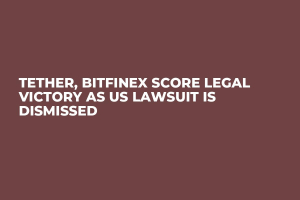The crypto industry faces a race against time to challenge a new law that will compel U.S. businesses to gather personal information on users conducting digital asset transactions exceeding $10,000 to purchase goods and services. Set to take effect Jan. 1, 2024, the controversial regulation has sparked a legal battle between crypto-focused non-profit Coin Center and the Treasury Department, reports DL News.
Thus, Coin Center previously sued the ministry, arguing that the law infringed on individuals' privacy and amounted to unconstitutional monitoring. However, their case was dismissed by a judge who deemed the harm speculative since the regulation had yet to be enforced. Undeterred, the pro-crypto organization plans to appeal the decision.
The Department of Justice has defended the regulation, asserting that it simply extends Congress's authority to increase the level of tax compliance. The reporting standards for crypto transactions are to be aligned with those applied to cash transactions. Businesses will be required to collect the names, addresses and social security numbers of individuals purchasing goods or services.
Privacy issues
While proponents argue that this measure will aid in curbing tax evasion, critics fear its potential implications on user privacy. Blockchain's inherent transparency allows for extensive tracking of transactions, jeopardizing the anonymity many users value in decentralized finance protocols. The law may also hinder certain businesses, such as law firms, from receiving cryptocurrency payments without disclosing clients' identities to the government.
With the January 2024 deadline approaching, the crypto community awaits further clarity and guidance on the regulation's implications. The battle over regulations continues to rage, as lawmakers strive to balance freedom of innovation with the need to combat illicit activities in the crypto space.




 Dan Burgin
Dan Burgin Vladislav Sopov
Vladislav Sopov